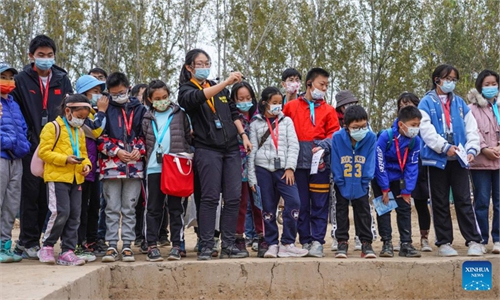
Workers of the Israel Antiquities Authority work at the excavation site in the Givati Parking Lot in the City of David National Park near the walls of the old city of Jerusalem on Sept. 5, 2022.(Photo: Xinhua)
An international research team found the earliest known evidence of cooking at an archaeological site in Israel.
The researchers examined ancient fish remains unearthed from the Gesher Benot Ya'aqov archaeological site, which preserved evidence of hearth-related human activities around the now-drained Lake Hula in the Jordan Valley, said the finding published on journal Nature Ecology & Evolution on Thursday.
They have founded "significant difference" between fish bone assemblages recovered from eight archaeological layers of an area in the site and the natural fish bone unearthed in a nearby area.
The first area also exhibited low fish species richness, with a clear preference for two large ancient fish. After detailed analysis of the teeth's changes in size, the team revealed that the fish caught from the lake were exposed to fire below 500 C, suggesting, together with other data, that the fish "had been cooked and consumed on site," said the study. "This is the earliest evidence of cooking by hominins," reads the study's abstract.
They are the oldest signs of the controlled use of fire to cook food, which date back to 780,000 years ago, said a joint statement issued by Israeli researchers and their counterparts from Britain's Natural History Museum and Germany's Johannes Gutenberg University of Mainz on Tuesday.
The study demonstrates that fish had been an integral part of the diet of prehistoric hunter-gatherers and indicates development of their cooking techniques, the researchers noted.
Xinhua

